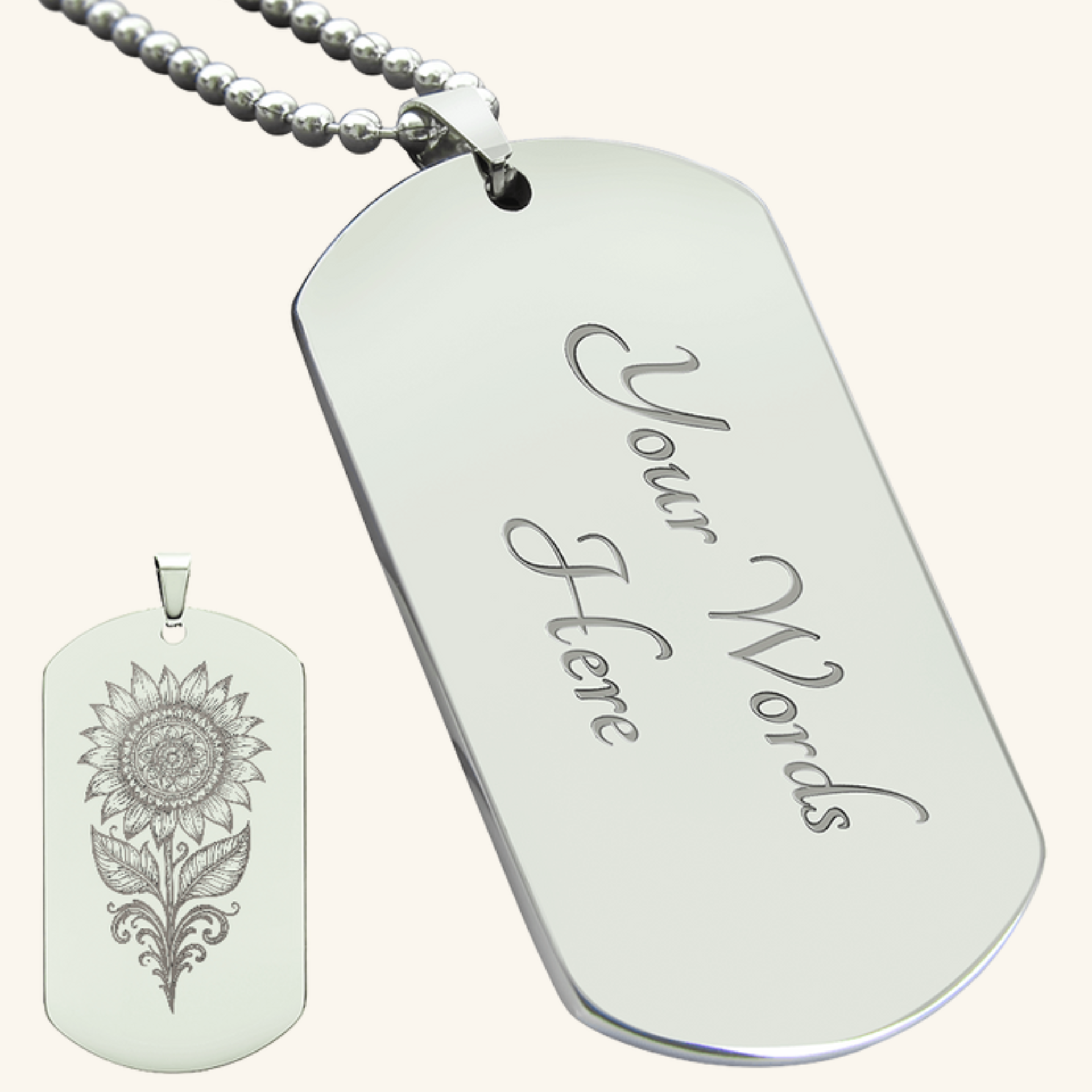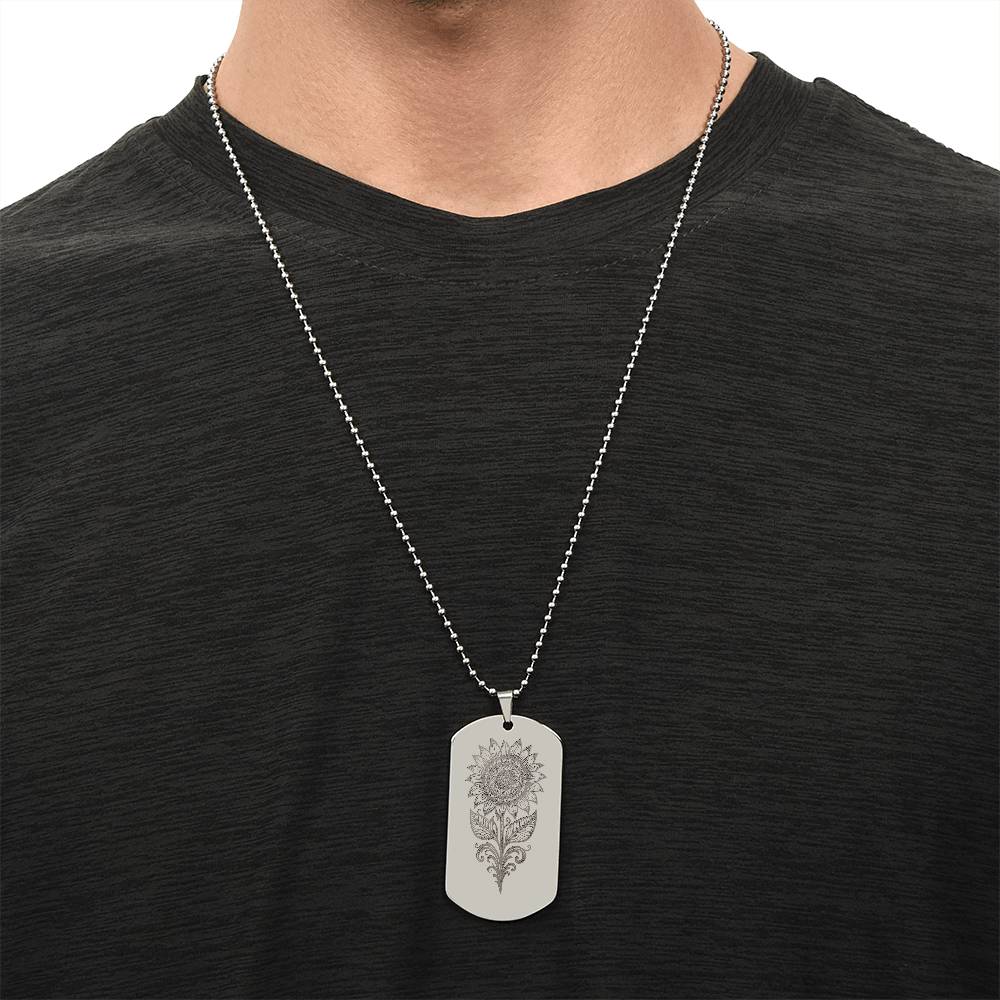Sensory-Friendly Event Guide:

Written by HeyASD.com Team
Sensory-Friendly Event Guide is your comprehensive resource for attending and understanding events designed to accommodate individuals with sensory sensitivities. Whether you are a person with sensory processing differences, a family member, or an event organizer, this guide provides essential information to ensure an inclusive and enjoyable experience for all. From planning your visit to engaging with art in a new way, the guide covers a range of topics to help you navigate and appreciate sensory-friendly events.
Key Takeaways
- Sensory-friendly events offer modified environments to cater to individuals with sensory sensitivities, such as adjusted lighting and sound levels.
- Pre-visit resources like Sensory Guides and Social Stories can help attendees prepare for the experience, reducing anxiety and uncertainty.
- Events like Sensory-Friendly Saturdays and Evenings provide opportunities for neurodivergent individuals and their families to enjoy cultural activities in a supportive setting.
- Accessibility and accommodations are key components, with features like relaxation rooms, preregistration, and crowd management to ensure comfort.
- Continuous improvement through staff training, visitor support, and feedback is vital for creating welcoming and successful sensory-friendly events.
Understanding Sensory Sensitivities
Defining Sensory Processing Differences
Sensory processing differences are variations in how individuals perceive and respond to sensory information. Sensory processing involves the way our brain interprets signals from our senses and turns them into appropriate behavioral responses. For some, this process can be overwhelming or underwhelming, leading to sensory sensitivities or challenges.
Neurodivergent individuals, including those with autism spectrum disorder, may experience the world more intensely or may not filter sensory stimuli as effectively as others. This can result in a need for sensory-friendly environments that accommodate their unique sensory thresholds.
- Noise-canceling headphones
- Dimmed lighting
- Access to quiet spaces
- Tactile objects for fidgeting
Creating sensory-friendly events is about understanding and respecting these differences, ensuring that everyone has the opportunity to engage comfortably with their surroundings.
The Importance of Sensory-Friendly Environments
Sensory-friendly environments are essential for individuals with sensory sensitivities, such as those with autism, PTSD, dementia, and other conditions that affect sensory processing. Creating a space that minimizes sensory overload can significantly enhance the experience for visitors who might otherwise find public spaces overwhelming. These environments allow for full participation and enjoyment, fostering inclusivity and respect for neurodiversity.
Adaptations in lighting, sound, and the availability of quiet spaces are key components of a sensory-friendly setting. For example, museums offering Sensory-Friendly Mornings adjust environmental factors to ensure a comfortable visit for all guests. The provision of sensory kits and trained staff further supports a positive experience.
- Dimmed lighting
- Reduced sound levels
- Quiet break areas
- Sensory kits with tools to help manage sensory input
Sensory-friendly events are not just about accessibility; they're about creating a welcoming atmosphere that acknowledges and accommodates the diverse needs of the community.
By attending events like Sensory-Friendly Saturdays, individuals and families can explore and engage with cultural venues in a way that is considerate of their sensory preferences. This thoughtful approach to event planning is a testament to the growing awareness and support for neurodivergent individuals.
Recognizing the Needs of Neurodivergent Individuals
Understanding neurodiversity is key to creating inclusive events. Neurodivergent individuals, including those on the autism spectrum, often experience the world with heightened sensitivity to sensory stimuli. Recognizing and accommodating these differences is crucial for their comfort and enjoyment.
For many, a visit to a museum or public event can be overwhelming. That's why sensory-friendly features, like reduced noise and crowd control, are essential. These adjustments make spaces more navigable and less distressing, allowing neurodivergent guests to engage with the environment on their own terms.
By providing a supportive atmosphere, events can become a place of discovery and connection for everyone.
An autism store might offer sensory tools that can help individuals manage their sensory experiences. Items like noise-canceling headphones and fidget toys can be invaluable for guests needing to regulate sensory input during an event.
Here's a quick checklist for event planners to consider:
- Ensure quiet zones or relaxation rooms are available
- Provide clear signage and information
- Offer sensory bags with helpful items
- Train staff to be aware of and responsive to sensory needs
Planning Your Visit
Pre-Visit Resources: Sensory Guide and Social Story
Preparing for a sensory-friendly event can be a smooth and reassuring process with the right resources. A Sensory Guide and Social Story are essential tools for visitors with sensory sensitivities to familiarize themselves with the environment before arrival. These resources provide a detailed preview of the sensory experiences one can expect, from the ambient sounds to the visual stimuli.
Social stories depict a typical visit through a series of descriptive images and text, akin to a children's book. They set clear expectations and assist in managing behavior by explaining the sounds, sights, and situations that may arise. Reading a social story can significantly ease the anxiety of attending a new event.
To ensure a comfortable visit, consider the following steps:
- Review the Sensory Guide for specific information about sensory stimuli at the event.
- Read the social story available on the event's website to visualize the experience.
- Contact the event organizers for any additional information or clarification.
Remember, these resources are designed to help you or your loved one have a positive and enjoyable experience. Utilize them to their fullest to make the most of your visit.
For those interested in expressing their support for sensory awareness, there is a range of Autism-themed wall art, decor, apparel, and accessories available. Not only do these items serve as a form of expression, but they also contribute to a greater understanding and acceptance of neurodiversity.
Navigating Sensory-Friendly Events
Attending a sensory-friendly event can be a transformative experience, especially for those with sensory processing differences or autism spectrum disorder. Preparation is key to making the most of these events. Here's a quick guide to help you navigate your visit:
- Check the schedule: Look for events like Sensory-Friendly Saturdays, which offer a calm environment with adapted lighting and sound levels.
- Preregister: Many events, such as the Sensory-Friendly Evening at the High Museum of Art, require preregistration. This helps manage crowds and ensures a comfortable experience.
- Arrive early: Arriving early can help you acclimate to the space and avoid the rush.
- Utilize resources: Take advantage of available resources like art-making workshops, educator-led tours, and quiet rooms.
Remember, these events are designed to be inclusive and welcoming, allowing you to engage with art and activities at your own pace, in a way that feels comfortable for you.
Whether you're exploring the museum during a Sensory-Friendly Morning with dimmed lights and minimal noise or enjoying the creativity of Autism-themed wall art, these events are crafted to meet diverse needs. Embrace the opportunity to experience world-class art and activities in a supportive environment.
What to Expect at Sensory-Friendly Saturdays
Sensory-Friendly Saturdays are designed to create an inclusive and comfortable environment for everyone, especially those with sensory sensitivities. Expect a morning of exploration and engagement with fewer crowds and sensory modifications in place. Here's what you can look forward to:
- Lowered lighting and quieter sounds throughout the venue
- A variety of interactive exhibits that cater to different sensory needs
- A brief, adapted planetarium show that starts at a specific time
- Access to quiet areas or relaxation rooms for when you need a moment of calm
Remember, these events are not just for children but for adults of all ages with sensory processing differences or autism spectrum disorder. Whether you're looking to enjoy art, be creative, or simply spend time with friends and family, Sensory-Friendly Saturdays provide a supportive space.
Embrace the opportunity to experience world-class exhibits and activities without the usual hustle and bustle. This is your time to enjoy the museum at your own pace, in a way that feels right for you.
Lastly, don't forget to check out the Autism-themed wall art, apparel, and decor available in the museum store. It's a great way to continue promoting creativity and awareness beyond your visit.
Sensory-Friendly Event Features
Adapted Lighting and Sound Levels
Creating a sensory-friendly environment often hinges on the delicate balance of lighting and sound. Lights are turned up, and the sound is kept down to create a comfortable atmosphere for all attendees. This adjustment allows individuals with sensory sensitivities to engage with the event without the overwhelming glare and noise that can often accompany large gatherings.
- Noise-cancelling headphones and fidget toys are available
- Signage indicating 'headphone zones' and quiet areas
- Staff trained to be understanding and empathetic
By carefully modulating the sensory input, events become accessible and enjoyable for everyone, including those with autism or other sensory processing differences.
Ticketing options are tailored to accommodate sensory needs, with varying prices to ensure accessibility. For example, the Millstone 14 Theater offers monthly sensory-friendly showings, with tickets priced at $6 per person, making it easier for families to plan and enjoy outings without financial strain.
Relaxation Room: A Space for Calm
In the heart of the sensory-friendly event lies a haven of tranquility: the Relaxation Room. Designed as a serene escape, this space offers a respite from the sensory stimulation of the event. With soft lighting and calming sounds, it's a place where visitors can unwind and recharge. The room features tactile materials that cater to the need for sensory input while providing a soothing atmosphere.
- Advanced ticketing reduces wait times
- Smaller, more manageable crowds
- Modified sound levels for a tranquil experience
The Relaxation Room is not just a quiet corner; it's a thoughtfully curated environment that acknowledges the diverse sensory needs of all guests.
Whether you need a moment to decompress or a space to quietly engage with your surroundings, the Relaxation Room is an essential part of the sensory-friendly experience. It's a testament to the event's commitment to inclusivity, ensuring that everyone has the opportunity to enjoy the event at their own pace.
Art-Making Workshops and Educator-Led Tours
Dive into the heart of creativity with our art-making workshops, designed to inspire and engage attendees of all ages. Experience the joy of creation as you work alongside professional artists to craft your own masterpiece. These workshops are tailored to accommodate sensory sensitivities, ensuring a comfortable and inclusive environment for everyone.
Our educator-led tours offer a unique perspective on the museum's collections. Lasting approximately forty-five minutes, these tours highlight four to five significant artworks and are facilitated by knowledgeable museum educators. Assistive listening devices and stools are provided to make the experience accessible and enjoyable for all participants.
Embrace the opportunity to connect with art in a new, sensory-friendly way. Our workshops and tours are not just activities; they're gateways to understanding and appreciating art on a deeper level.
For a seamless experience, consider the following tips:
- Arrive early to familiarize yourself with the venue.
- Take advantage of the relaxation room if you need a break.
- Engage with educators and artists; they're here to enhance your visit.
Remember, these events are more than just a visit to the museum; they're a chance to engage with art in a supportive and accommodating setting.
Event Schedules and Offerings
Overview of Sensory-Friendly Mornings and Evenings
Sensory-Friendly Mornings offer a tranquil start to the day for those with sensory sensitivities, disabilities, autism, PTSD, dementia, and more. Visitors can enjoy the museum with dimmed lighting, minimal environmental noise, and access to a quiet space for breaks. Additionally, a Chicago-based artist leads a sensory-friendly art-making session, enhancing the creative experience.
During Sensory-Friendly Evenings, the museum transforms into an inclusive space where adults with sensory processing differences or autism spectrum disorder can explore world-class art. The evening includes art-making workshops, educator-led tours, and the opportunity to socialize with light refreshments in a relaxed setting.
Sensory-Friendly Saturdays extend the experience into the weekend, providing a comfortable atmosphere with adapted lighting and sound for families and children with sensory sensitivities.
-
Sensory-Friendly Mornings:
- Date: March 9
- Time: 9:00 AM - 11:00 AM
-
Sensory-Friendly Evenings:
- For adults with sensory processing differences
- Features art-making, tours, and social opportunities
Whether you're looking to engage with contemporary art or find a judgment-free zone to relax, these events are designed to accommodate and welcome everyone.
Special Exhibitions and Planetarium Shows
Our sensory-friendly events extend to the stars and beyond with planetarium shows designed for comfort and inclusivity. Experience the cosmos in a setting that's adapted for sensory sensitivities, with reduced volume and gentle lighting. Special exhibitions are curated to be just as welcoming, featuring tranquil sounds and engaging visuals that cater to all visitors.
At these events, you can expect smaller crowds and a pace that suits you, ensuring a visit that's both educational and enjoyable.
- Advanced ticketing minimizes wait times.
- Noise-cancelling headphones and fidget toys are on hand to enhance your experience.
- Our staff are trained to provide empathetic support throughout your visit.
Remember, space is limited to create a more intimate atmosphere, so preregistration is essential. Dive into our upcoming sensory-friendly exhibitions and planetarium shows, where curiosity leads and discovery awaits.
Interactive and Engaging Activities
Sensory-friendly events are not just about adapting the environment; they're about enriching the experience. Interactive and engaging activities are at the heart of this approach, offering a dynamic way for all attendees to connect with the event. From autism-themed wall art to tactile stations, these activities are designed to be inclusive and stimulating.
- Hands-on exhibits
- Sensory exploration zones
- Creative workshops
These activities encourage participation and exploration in a setting that respects individual sensory preferences. Whether it's through touch, sound, or visual elements, there's something for everyone to enjoy.
Embrace the joy of discovery in a space where everyone feels welcome and engaged.
Remember, sensory-friendly events are about creating moments of joy and learning for people of all ages and abilities. They are a testament to the power of inclusive design and the importance of celebrating neurodiversity.
Accessibility and Accommodations
Ensuring a Welcoming Experience for All
Creating an inclusive atmosphere is at the heart of sensory-friendly events. Accessibility is not an afterthought; it's woven into the fabric of the event design. By considering the needs of individuals with sensory sensitivities from the outset, events can offer a seamless experience that welcomes everyone.
- Partnering with organizations like KultureCity
- Providing Sensory Bags
- Designating Headphone Zones and Quiet Areas
These measures ensure that all guests, including those with sensory needs, feel comfortable and included. The collaboration with KultureCity, for example, has been instrumental in implementing improvements that cater to neurodiverse visitors.
By integrating sensory-friendly features into the planning and design of exhibits and spaces, we create a supportive, judgment-free environment for all to enjoy.
Remember, a truly welcoming experience is one where every guest can engage with the event in their own way, without barriers. This commitment to inclusivity not only enhances the experience for individuals with sensory processing differences but enriches the event for all attendees.
Facilities and Services Available
Ensuring accessibility and comfort for all attendees is a cornerstone of sensory-friendly events. Facilities are tailored to meet the diverse needs of visitors, with amenities designed to create a supportive environment. Here's a snapshot of what you can expect:
- Helpdesk: Your go-to spot for information and assistance during the event.
- Professional Consultation & Training: Access to experts for advice and support.
- Member Exclusive Events: Special occasions designed for members of the community.
- Sensory-Friendly Saturdays: A day dedicated to providing a comfortable experience for all.
Our commitment to accessibility extends beyond the event itself, with resources such as COVID-19 guidelines for families and voting rights information for individuals with disabilities.
Remember, our staff is trained to provide a welcoming experience, and we're here to help make your visit memorable. Don't hesitate to reach out for any special accommodations you might need.
Preregistration and Crowd Management
Ensuring a smooth and comfortable experience for all attendees is a top priority at sensory-friendly events. Preregistration is not just a convenience; it's a necessity. By signing up in advance, you help us manage crowd sizes, reducing wait times and creating a more relaxed atmosphere.
Preregistration also allows us to tailor the event to the needs of our guests, ensuring that everyone can enjoy the activities without feeling overwhelmed. Here's a quick look at how preregistration benefits everyone involved:
- Guaranteed Entry: Secure your spot and avoid the disappointment of a sold-out event.
- Streamlined Check-In: Bypass the long lines and get to the fun faster.
- Personalized Experience: Receive updates and information tailored to your visit.
Remember, space is limited to maintain a serene environment. Reserve your tickets well in advance to ensure your participation in these unique events.
Mark your calendars for upcoming dates and secure your spot early:
- February 11, 2024
- March 9, 2024
- April 14, 2024
- May 11, 2024
- June 9, 2024
For any inquiries or assistance with registration, please reach out to access@high.org. We're here to help make your visit memorable and stress-free.
Engaging with Art in a New Way
Experiencing Contemporary Art Judgment-Free
Sensory-Friendly Mornings are not just about accessibility; they're about transforming the museum into a judgment-free zone. Here, contemporary art becomes approachable, allowing visitors to engage with artworks without the pressure of 'getting it right.'
- Sensory modifications ensure a comfortable environment
- Educator-led tours provide context without critique
- Art-making workshops invite personal expression
Embrace the freedom to experience art in your own way, at your own pace.
Remember, there's no right or wrong way to interpret art. Sensory-Friendly events are designed to honor individual perspectives and encourage a deeper, more personal connection with the art on display. Whether you're a seasoned art enthusiast or a curious newcomer, these events offer a unique opportunity to enjoy the Museum of Contemporary Art with ease and comfort.
Sensory-Modified Environments for Better Engagement
Creating an environment that caters to sensory sensitivities is crucial for engagement and enjoyment. Sensory-friendly events are designed with the understanding that traditional settings can be overwhelming for some individuals. By modifying environmental factors such as lighting and sound, these events become accessible and inviting to all visitors, including those with sensory processing differences or autism spectrum disorder.
Visual stimming is a common need for many neurodivergent individuals, and sensory-friendly environments often incorporate elements that cater to this. For example, dimmed lighting and reduced background noise can help minimize distractions, allowing for a more focused and calming experience. Additionally, the availability of sensory bags, which may include items like noise-canceling headphones and fidget toys, supports individual needs for self-regulation.
Sensory-friendly events are not just about reducing stimuli; they're about creating a space where everyone can explore and appreciate art and culture at their own pace.
Here's what to expect at a sensory-friendly event:
- Adapted lighting and sound levels to reduce sensory overload
- Quiet spaces for breaks and relaxation
- Sensory bags equipped with tools for self-regulation
- Activities and tours led by trained educators
Remember, these events are a step towards inclusivity, offering a judgment-free zone where art and culture can be enjoyed by everyone. Whether you're attending a Sensory-Friendly Morning or an evening program, you'll find a supportive environment tailored to your sensory preferences.
Artist-Facilitated Sensory-Friendly Art Experiences
Sensory-friendly events are not just about adapting the environment; they're about enriching the experience. Artist-facilitated workshops offer a unique opportunity for visitors to engage with art in a way that is both accessible and deeply personal. These workshops are led by artists who are trained to create a supportive, inclusive atmosphere that encourages expression without the pressure of judgment or expectation.
- Art-making workshops: Engage in creative activities designed to be accessible and enjoyable for all.
- Educator-led tours: Explore exhibitions with guides who specialize in sensory-friendly experiences.
- Relaxed environment: Enjoy the museum at your own pace, with adaptations for a comfortable visit.
Sensory-Friendly Saturdays are a testament to the power of art to connect and inspire, regardless of sensory processing differences. They provide a space where creativity is not bound by conventional limits, and every individual is free to express themselves in their own unique way.
Whether it's a quiet morning or a lively evening, these events are tailored to meet the needs of those with sensory sensitivities, ensuring that everyone has the opportunity to experience the joy of art. Remember, sensory-friendly experiences are not a one-size-fits-all solution; they are a commitment to ongoing learning and adaptation, ensuring that the art world is welcoming to all.
Support and Resources
Staff Training and Visitor Support
Ensuring that every visitor has a supportive and understanding experience is paramount at sensory-friendly events. Staff training is a critical component, equipping team members with the knowledge and skills to assist guests with sensory sensitivities. From greeting visitors to managing potential overstimulation, trained staff are the backbone of a successful event.
italics Sensory-friendly training includes:
- Recognizing signs of sensory overload
- Effective communication strategies
- Tailoring the environment to individual needs
- Emergency response protocols
Our commitment to visitor support extends beyond the event itself. We provide resources and guidance to help families and individuals prepare for their visit, ensuring a seamless and enjoyable experience.
Remember, a well-prepared staff fosters a welcoming atmosphere, making all the difference for those attending. Your feedback helps us continuously improve our training and support services, creating an inclusive environment for everyone.
Community Resources and Partnerships
Building a strong network of community resources and partnerships is essential for the success of sensory-friendly events. Local organizations and businesses play a pivotal role in providing support and services that enhance the experience for attendees with sensory sensitivities.
- Trusted Resources
- Birthdays & Celebrations
- Enrichment & EDU Experts
- Schools & Preschools
- Health & Wellness
- Home & Garden
- Photographers
- Professional Services
- Shop & Style
- Summer Camps
- Woman Owned/Led
By collaborating with entities that understand and cater to neurodiverse needs, event organizers can offer a more inclusive and accommodating environment. From autism-themed wall art to educational workshops, these partnerships enrich the sensory-friendly atmosphere.
Our community calendar is a treasure trove of workshops, social events, and recreational opportunities tailored for sensory-sensitive individuals. It's a one-stop-shop for families seeking meaningful experiences.
Volunteer groups and non-profit organizations often provide invaluable assistance, ensuring that every aspect of the event is accessible and enjoyable for all. The collective effort of these partnerships results in a welcoming space where diversity is celebrated and all visitors can engage with the content comfortably.
Feedback and Continuous Improvement
At the heart of creating an inclusive environment is the commitment to feedback and continuous improvement. The journey doesn't end with the launch of a sensory-friendly event; it's an ongoing process that thrives on community input. For instance, the GRPM's Toys! Exhibit was transformed through multiple design iterations, informed by diverse perspectives, to cater to those with sensory sensitivities.
- Gathering insights from visitors
- Consulting with experts
- Implementing changes
These steps are crucial for evolving our events. Your experiences and suggestions are invaluable to us. By sharing your thoughts, you help shape a more welcoming space for everyone. We encourage you to express your feedback—whether it's about the art-making workshops, the adapted environments, or the overall experience.
We're dedicated to not just meeting, but exceeding the expectations of our neurodiverse community. Let's continue to grow and enhance these events together.
Beyond the Event: Continuing the Experience
Taking the Sensory-Friendly Approach Home
Extending the calm and accommodating atmosphere of sensory-friendly events into your home can make daily life more comfortable for individuals with sensory sensitivities. Create a personalized sensory-friendly space by incorporating elements that reduce sensory overload and promote relaxation.
- Use soft lighting or adjustable light sources to control brightness.
- Introduce noise-cancelling headphones or soundproofing materials to minimize auditory distractions.
- Choose comfortable furniture and textiles that are soothing to the touch.
Embrace the sensory-friendly approach by adapting your living environment to meet the unique needs of you or your loved ones.
Remember, the goal is to foster an environment where sensory input is manageable and stress is reduced. By making these adjustments, you can enjoy a sanctuary of peace and comfort, mirroring the thoughtful accommodations experienced at sensory-friendly events.
Connecting with Others: Building a Supportive Community
Building a supportive community is essential for individuals with sensory sensitivities and their families. Engaging with others who share similar experiences can foster a sense of belonging and provide valuable support. It's not just about attending events; it's about creating connections that last beyond a single day.
- Trusted Resources
- Birthdays & Celebrations
- Enrichment & EDU Experts
- Schools & Preschools
- Health & Wellness
- Home & Garden
- Photographers
- Professional Services
- Shop & Style
- Summer Camps
- Woman Owned/Led
These resources serve as a starting point for families to engage with service providers who understand their unique needs. From trusted resources to enrichment programs, the options are diverse and cater to various aspects of life.
Embrace the journey of building a supportive community by exploring activities and groups that resonate with your family's needs.
Whether it's through local support groups, online forums, or family-focused events, finding your tribe can make all the difference. The Autism Alliance of Michigan and the Macomb-Oakland Regional Center are just a couple of examples where you can find workshops, activities, and peer support tailored to the autism community.
Future Events and Ongoing Initiatives
Our commitment to sensory-friendly experiences is a journey, not a destination. Stay tuned for our evolving calendar of events, designed with inclusivity at its heart. From Autism-themed wall art exhibitions to interactive workshops, we're dedicated to enriching lives through art that speaks to everyone.
-
Upcoming Sensory-Friendly Events:
- 2024 Transition Expo
- Milestones National Autism Conference
- Reach for the Stars Celebration
We're also excited about our ongoing initiatives that ensure a continuous sensory-friendly environment:
-
Ongoing Programs:
- Friday Nights: A relaxed atmosphere for adult visitors
- Young Children: Tailored experiences for our youngest guests
- Professional Learning: Resources and workshops for educators
Embrace the opportunity to engage with art in a way that feels comfortable and accessible. Our future events and initiatives are crafted to create a welcoming space for all.
Join Hundreds of Autistic Adults Feeling
More Comfort in Their Own Skin
Use code WELCOME10 for 10% off your first order.
Start Your Comfort JourneyFrequently Asked Questions
Addressing Common Concerns
When planning to attend a sensory-friendly event, common concerns may arise, especially for first-time attendees or those not familiar with sensory sensitivities. We're here to address your worries and ensure a comfortable experience for everyone.
- Will the environment be too overwhelming? Rest assured, sensory-friendly events are designed with adapted lighting and sound levels to create a soothing atmosphere.
- What if a break is needed? A relaxation room is always available, providing a quiet space for anyone who needs a moment of calm.
- Are there activities for all ages and interests? Absolutely! From art-making workshops to educator-led tours, there's something for everyone.
Remember, sensory-friendly events are about inclusivity and enjoyment. Our goal is to make art and culture accessible to all, regardless of sensory processing differences.
For those looking for unique items that promote creativity and awareness, consider exploring our selection of Autism-themed wall art, apparel, and decor. With free shipping on orders over $49, it's a great way to support the community and find something special.
Tips for First-Time Attendees
Attending a sensory-friendly event for the first time can be a rewarding experience. Prepare ahead by reviewing the Sensory Guide and Social Story available on our website. These resources provide a detailed overview of what to expect and how to navigate the event comfortably.
Arrive early to visit the Welcome Table in the Stent Family Wing Lobby from 6–8 p.m. for additional information, a Sensory Map, and to borrow sensory tools like headphones or fidgets.
Preregister to secure your spot, as space is intentionally limited to create a more relaxed environment.
For any questions or special accommodations, reach out to access@high.org well in advance of the event. Embrace the opportunity to experience art and culture in a sensory-modified setting, ensuring a welcoming experience for all attendees.
Remember, sensory-friendly events are designed to be inclusive and accessible. They offer a unique chance to engage with art and community in a comfortable setting.
How to Get Involved and Support the Cause
Becoming an active supporter of sensory-friendly events is not just rewarding, it's essential for fostering inclusive communities. Your involvement makes a significant difference in the lives of those with sensory sensitivities. Here's how you can contribute:
- Become a Member: Gain exclusive benefits while supporting the cause.
- Donate: Every contribution helps us create more sensory-friendly experiences.
- Volunteer: Lend your time and skills to make our events successful.
- Corporate Sponsorship: Partner with us to showcase your commitment to accessibility.
By engaging with the community and participating in these initiatives, you help us extend the reach of sensory-friendly programming and ensure that everyone has the opportunity to enjoy events comfortably and joyfully.
Remember, your actions, big or small, contribute to a larger movement towards inclusivity and understanding. Whether you're an individual, a business, or an organization, there are numerous ways to get involved and champion the cause.
Conclusion
In summary, sensory-friendly events are a crucial step towards inclusivity, providing a comfortable and accessible environment for individuals with sensory sensitivities and neurodivergent conditions. These events, such as Sensory-Friendly Saturdays, Evenings, and Mornings, offer a range of activities from art-making workshops to quiet relaxation rooms, ensuring that everyone has the opportunity to engage with cultural experiences at their own pace. With lowered lighting, reduced noise, and smaller crowds, these events demonstrate a growing awareness and accommodation for diverse sensory needs. As more venues adopt sensory-friendly initiatives, we move closer to a society where art, education, and community spaces are truly welcoming for all.
Frequently Asked Questions
What is Sensory-Friendly Saturday?
Sensory-Friendly Saturday is a monthly series that offers a welcoming and accessible environment for individuals, families, and children with sensory sensitivities. It features lowered lighting, quieter sounds, and fewer visitors to enjoy exhibits like the Minnesota Journeys gallery, temporary exhibits, the Touch & See Lab, and a brief planetarium show.
What can I expect at Sensory-Friendly Evenings?
Sensory-Friendly Evenings are after-hours programs for adults with sensory processing differences, autism spectrum disorder, or who identify as disabled or neurodivergent. They include art-making workshops, educator-led tours, games, guides for exploring, and light refreshments in a relaxed environment.
Do I need to preregister for Sensory-Friendly Events?
Yes, space is limited to reduce crowds, and preregistration is required for Sensory-Friendly Events to ensure a comfortable experience for all attendees.
Are there any resources available to prepare for my visit?
A Sensory Guide and Social Story are available to help visitors prepare for their visit. These resources provide information about what to expect and how to navigate the event comfortably.
What accommodations are available during Sensory-Friendly Mornings?
During Sensory-Friendly Mornings, the museum offers a judgment-free environment with dimmed lighting, minimal environmental noise, a quiet space for breaks, and a sensory-friendly art-making experience facilitated by a local artist.
Is there a cost associated with attending Sensory-Friendly Mornings?
Sensory-Friendly Mornings are a free program, designed to be accessible to all visitors, especially those with sensory sensitivities and other conditions that benefit from a more controlled environment.
What is the Relaxation Room?
The Relaxation Room is a designated space available during certain events where visitors can enjoy soft lighting, tactile materials, and calming sounds for a peaceful break from the sensory-friendly activities.
How can I get involved and support Sensory-Friendly Events?
You can get involved by attending events, spreading the word to those who may benefit from sensory-friendly environments, volunteering, or by providing feedback to help improve future events. Contact the event organizers for more information on how to support the cause.
On This Page
Frequently asked questions
What are sensory-friendly events, and how do they support individuals with sensory sensitivities?
How can I prepare for attending a sensory-friendly event to feel more comfortable?
What types of neurodivergent accommodations can I expect at these events?
How do sensory-friendly environments help reduce anxiety and sensory overload?
Are there autism support items like calming blankets or sensory tools available at these events or nearby?
What should I know about preregistration and crowd management for sensory-friendly activities?
How are staff trained to assist visitors with sensory processing differences during these events?
Can families and autistic adults find disability-friendly activities that welcome all ages?
Where can I find Autism-themed decor or sensory-friendly apparel to continue support beyond the event?

About the HeyASD.com Team
Autistic‑owned • Values‑led • Sensory‑friendly design
We are autistic creators, writers, and advocates dedicated to producing resources that are practical, sensory-aware, and grounded in lived experience. Our mission is to make information and products that support the autistic community accessible to everyone, without jargon or condescension. Learn more about our team.
This article is written from lived autistic experience and an evidence-aware perspective. It is for general informational purposes only and should not be taken as medical, legal or therapeutic advice.
Always consult a qualified clinician or occupational therapist for individual needs and circumstances.

About Our ASD Blog
HeyASD is more than a store, it’s a calm, supportive space for autistic adults and the people who care about them. Explore identity-affirming stories, sensory regulation tools, and uplifting resources from our community.
Thank you for reading. We hope these resources bring comfort and clarity.









































